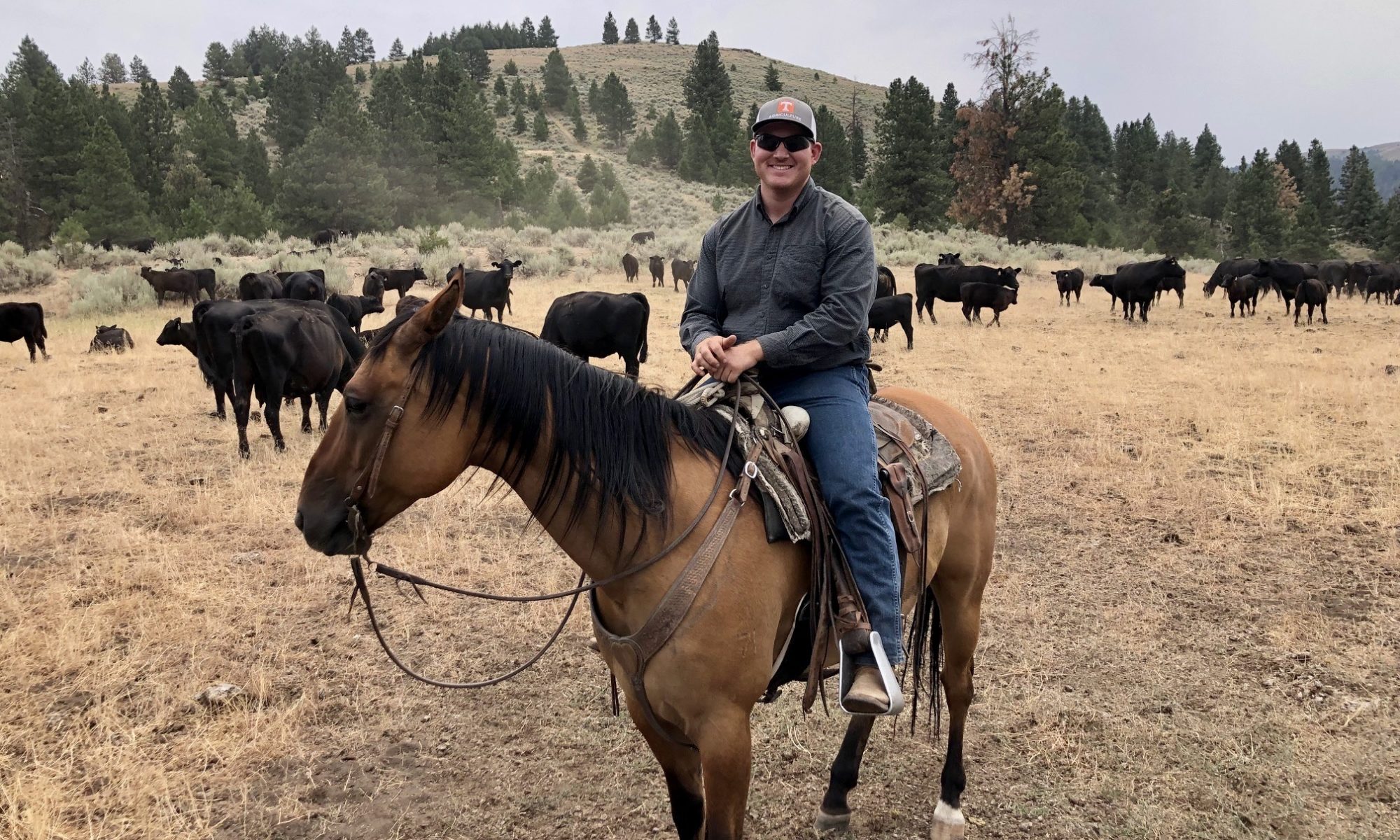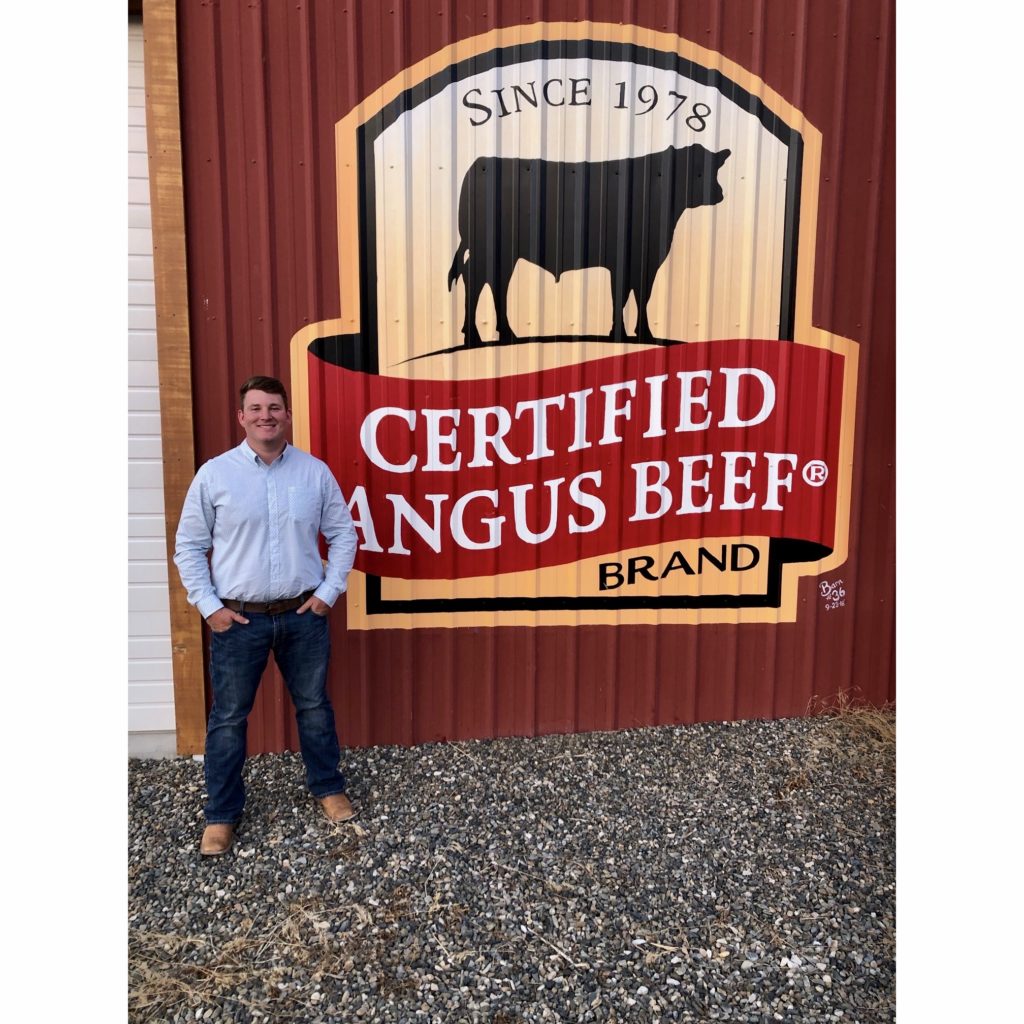
Ian Kane, a 2021 graduate from our Food and Agricultural Business program, recently accepted a job as a membership representative for the Montana Stockgrowers Association in Helena, Montana. Kane serves current members, recruits, and assists with industry relations on behalf of MSGA, traveling to cattle sales across the state, working with collegiate stockgrower programs, participating in beef promotion events at the state capitol, and more.
“What I find most rewarding in this role is building relationships with our members, learning their operation’s story, and then looking for ways I can help their ranch remain a viable business for generations to come,” said Kane. “MSGA works hard to advocate on our members’ behalf to protect Montana’s ranch families and their way of life. The ranching industry is vital to Montana’s economy and sustains many rural communities by providing consumers with high quality protein.”
Kane credits his undergraduate agricultural business courses for increasing his ability to analyze the complex challenges facing the agribusiness sector. “The variety of disciplines covered in the program exposed me to multiple facets of managing an agricultural operation, which I believe made me more versatile as a prospective candidate when applying for jobs,” said Kane. “The most critical piece of my undergraduate experience was the relationships I was able to build with my peers and mentors throughout the industry. Agriculture is a very big industry with a very small community. Surrounding myself with great mentors and peers expedited my learning and growth as a young professional while also helping me discover new career opportunities.” During his undergraduate program, Kane held internships with the National Cattlemen’s Beef Association; Thomas Angus Ranch in Baker City, Oregon; Wulf Cattle in Atkinson, Nebraska; and Golden Belt Feeders in St. John, Kansas.

Following graduation, Kane held a cattle production internship at Yon Family Farms in Ridge Spring, South Carolina, and a regional manager internship with the American Angus Association, based in St. Joseph, Missouri. He described the American Angus Association internship as one of the most unique learning opportunities available to young professionals interested in the beef cattle industry. “I was able to represent the Angus Association in fourteen different states by attending cattle sales, conducting herd visits, and participating in industry conferences. This internship allowed me to learn about marketing and advertising strategies, improve my communication skills, and build relationships with cattle producers across the country.” After completing this internship, Kane accepted the job with MSGA.
Value of Internships
“Internships were instrumental in my college learning experience. I would encourage current students to take advantage of internship opportunities early and often. Internships allow students to gain work experience, build their network, and try different career paths. With so many opportunities in the agriculture industry, being able to discern what part of the industry interests you can be very helpful. I would also recommend students take at least one internship out of state because the agriculture industry has distinct opportunities and challenges in different parts of the country. Observing these varying styles of production can provide you with a unique prospective to make you stand out in the workforce.”
Inspiring Words for Alumni and Students
“I encourage all of us to get involved. If you are still a student, find a couple of student organizations to join. For those of us who have completed our time in the classroom, we should try to get involved with our producer organizations on the local, state, or national levels. If we want to attract bright and talented professionals into our industry, what better way to advocate than by being a leader or active contributor in your community?”
Life in Montana
“Life in Montana has been an adventure. My role with MSGA has allowed me to travel to many regions of the state within my short tenure. It has been interesting to see the contrast between mountainous Western Montana and the wide-open plains in Eastern Montana. I’ve had the opportunity to learn more about the nuances between the agriculture industry in the Eastern versus the Western United States regarding topics such as water rights, public lands management, and brand laws. One of the biggest differences between Tennessee and Montana is the population density, with Montana being a significantly larger state and a much lower population. It is safe to say that it snows here quite a bit more as well.”